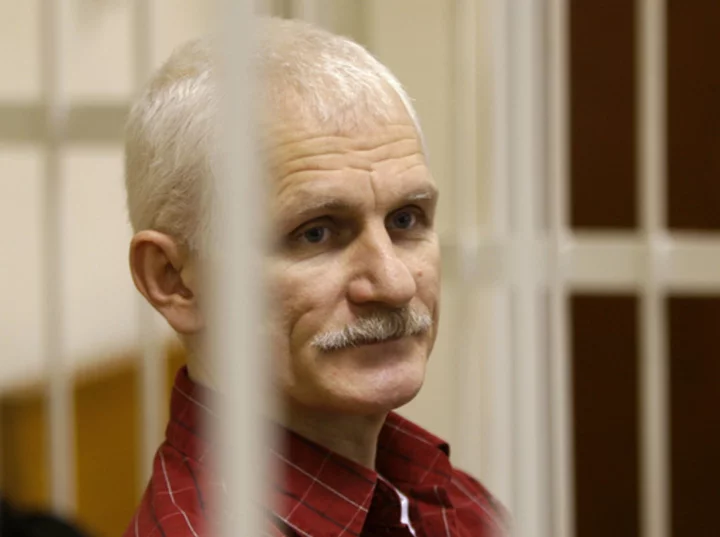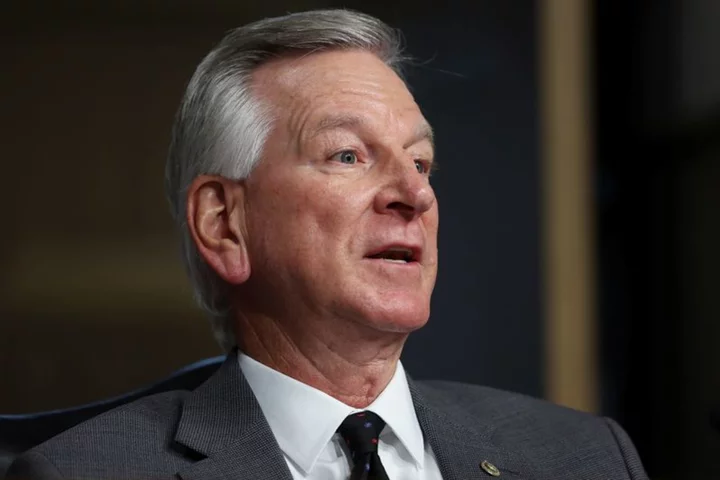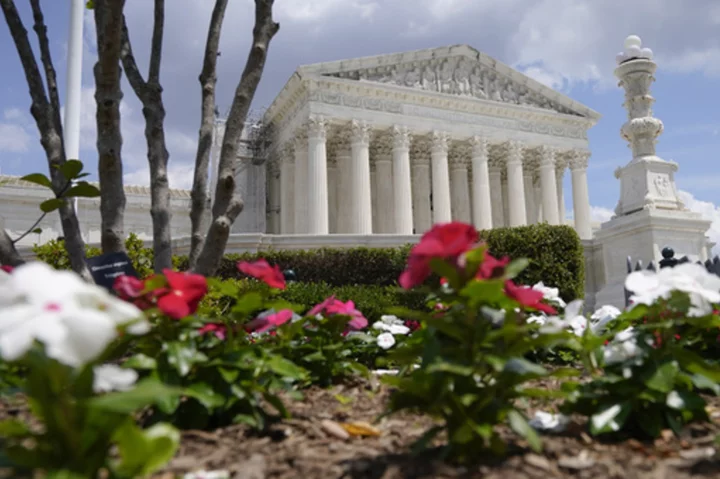TALLINN, Estonia (AP) — Belarusian authorities Wednesday declared the country's oldest and most prominent human rights group an extremist organization.
The move against Viasna, founded by imprisoned Nobel Peace Prize laureate Ales Bialiatski, comes amid a yearslong crackdown on dissent in Belarus and exposes anyone involved in its activities to criminal prosecution.
Belarus was swept by massive protests, some of which drew more than 100,000 people, after the August 2020 presidential vote handed a sixth term to the country's authoritarian President Alexander Lukashenko. The election was rejected as fraudulent by the opposition and the West.
Authorities responded with a brutal crackdown. More than 35,000 people were arrested, thousands were beaten by police while in custody, and hundreds of nongovernmental organizations and independent media outlets were shut down and outlawed as extremist.
The move against Viasna significantly ramped up the pressure on dissenters in Belarus. Viasna has branches in the majority of the country’s large cities, and hundreds of volunteers and activists all over the country who monitor human rights abuses in Belarus on a daily basis.
The authorities say that anyone who has anything to do with the group and continues to be involved with it will face criminal charges, such as “contributing to an extremist organization." The offense is punishable by up to seven years in prison.
Belarus' Interior Ministry on Wednesday accused Viasna of “preparing attacks on the sovereignty and public security of Belarus, (and) discrediting and insulting officials.” Some 30 of its branches and information outlets linked to it were also added to the list of extremist organizations.
Bialiatski founded Viasna in 1996. The renowned human rights advocate was arrested after the 2020 protests and was awarded the Nobel Peace Prize in 2022 while serving a 10-year prison sentence. Five other top Viasna advocates are also behind bars.
According to Viasna, a total of 1,489 political prisoners are incarcerated in Belarus, and the authorities deliberately create unbearable living conditions for many of them.









